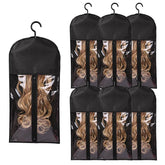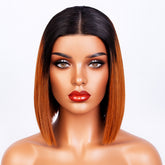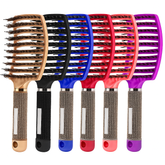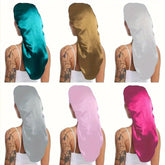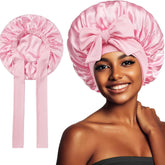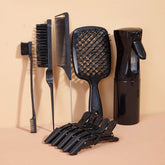Does alcohol cause hair loss? How to protect your hair

Recent headlines have linked drinking—particularly beer—to an increased risk of hair loss. The story, based on new research reported in the press, has left many wondering whether their pint is secretly undermining their hair. This guide looks at what the study actually suggests, the plausible biological links between alcohol and shedding, and practical, evidence-based steps you can take to protect your hair without unnecessary alarm.
What the research actually found
Press reports summarised a recent observational study that identified an association between alcohol intake and higher rates of hair loss. Observational studies can highlight patterns in large groups but cannot prove cause and effect — they show correlation rather than direct causation. The study’s findings add to a broader picture suggesting lifestyle factors can influence hair health, but they are not definitive on their own.
How alcohol might affect hair — plausible mechanisms
Researchers and clinicians point to several reasonable biological explanations for how alcohol consumption could contribute to hair thinning. These are general mechanisms supported by broader medical knowledge rather than specific conclusions from a single study:
- Nutrient depletion: Alcohol can interfere with absorption and metabolism of nutrients important for hair growth, such as zinc, iron, folate and certain B vitamins.
- Hormonal changes: Alcohol can affect hormone levels, including oestrogen and testosterone pathways, which play a role in some types of hair loss.
- Inflammation and immune response: Excessive alcohol intake may increase systemic inflammation, which can negatively affect the hair growth cycle.
- Liver and metabolic health: Chronic heavy drinking impairs liver function and overall metabolism, potentially creating an environment less favourable for healthy hair growth.
- Dehydration: Alcohol is diuretic; dehydration affects scalp health and can make hair appear dull and fragile.
These mechanisms are more likely to be relevant with heavier or chronic alcohol use. Occasional, moderate drinking is less likely to produce the same effects, although individual susceptibility varies.
Practical steps to protect your hair
If you’re concerned about the link between drinking and hair loss, there are practical, low-risk measures you can take to reduce potential harm and support hair health. These steps focus on overall wellbeing rather than quick fixes.
- Moderate alcohol consumption: Follow UK guidance on low-risk drinking — include regular alcohol-free days and avoid binge drinking. Reducing intake is the simplest way to limit any alcohol-related risks.
- Check your nutrition: Aim for a balanced diet rich in protein, iron, zinc and vitamins. If you suspect deficiencies, ask your GP for blood tests before starting supplements.
- Hydrate and mind sugar: Alcohol and sugary mixers can dehydrate and spike blood sugar. Drink water alongside alcohol and limit sugary soft drinks as replacements.
- Support scalp health: Use a gentle shampoo and avoid harsh chemicals; regular scalp massage can improve circulation and comfort.
- Manage stress and sleep: Chronic stress and poor sleep are well-known triggers for temporary shedding — addressing these factors supports hair recovery.
- Seek professional advice: If you notice rapid shedding or patterned hair loss, consult a GP or dermatologist to rule out medical causes and discuss evidence-based treatments.
When to see a clinician
Not all hair thinning is down to lifestyle. If you experience sudden or severe shedding, patchy hair loss, scalp irritation, or other worrying signs, it’s important to see a healthcare professional. They can check for underlying conditions — such as thyroid disease, iron deficiency, or autoimmune causes — and offer targeted treatment plans.
Takeaway
Headlines linking beer and baldness reflect a growing interest in how lifestyle affects hair health, but one observational study does not prove alcohol directly causes hair loss. There are plausible mechanisms by which heavy or chronic drinking could contribute to poorer hair health, chiefly via nutrient depletion, hormonal shifts, inflammation and dehydration. The most sensible response is measured: reduce excessive alcohol intake, improve diet and hydration, protect your scalp, and seek medical advice if you notice troubling hair changes. Small, consistent lifestyle improvements often have the biggest impact.
Learn More: Explore detailed haircare routines and styling tips at Hairporium Guides.

